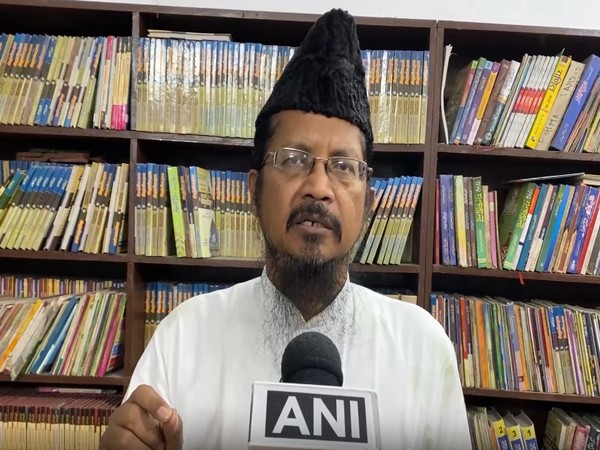Maulana Shahabuddin Razvi, the National President of All India Muslim Jamaat, has expressed his strong support for the Waqf (Amendment) Bill, 2025, calling it a significant step toward improving the socio-economic conditions of Muslims in India. The Bill, which passed through both the Lok Sabha and Rajya Sabha this week, aims to reform the management of Waqf properties and ensure that they benefit the marginalized Muslim communities.
In his first public statement after the passage of the bill, Maulana Shahabuddin hailed the efforts of the Modi government and emphasized that the Waqf (Amendment) Bill would be a boon for common Muslims, stating that it was in no way harmful to them. “The Waqf Amendment Bill does not harm common Muslims, it will benefit them. The only ones who stand to lose are the Waqf land mafias who have illegally occupied valuable land. Common Muslims will not be affected by this,” he clarified.
The Maulana further explained that the primary objective of the bill was to safeguard the interests of the poor and vulnerable sections within the Muslim community. He elaborated that the revenue generated from Waqf land would be directed toward enhancing the socio-economic status of impoverished Muslims, with a focus on those who cannot afford quality education for their children.
“The income from Waqf land will be used for the benefit of poor Muslims, helping children from low-income families get a better education, and assisting orphans and widows in their development,” Maulana Shahabuddin said.
He reassured the community that the funds would be used in accordance with the intended purpose of the Waqf, particularly in establishing schools, colleges, madrasas, and orphanages that would uplift the educational and social standing of underprivileged Muslims.
Addressing concerns regarding the impact of the bill on religious sites, the Maulana stressed that the Waqf Amendment Bill posed no threat to mosques, madrasas, Eidgahs, cemeteries, or shrines. “These religious institutions will remain unaffected. The government will not interfere with them in any way,” he affirmed.
The Maulana also cautioned against the spread of misleading political narratives, urging the Muslim community to avoid falling prey to divisive political rhetoric. “Some politicians are misleading Muslims for their own interests. I appeal to the Muslim community to not fall for their provocations,” he warned.
The passage of the Waqf (Amendment) Bill came after a heated debate in the Rajya Sabha in the early hours of Friday. The Bill was approved with a majority of 128 votes in favor and 95 votes against, following intense discussions. The Bill had earlier been passed in the Lok Sabha after nearly 12 hours of deliberations.
Maulana Shahabuddin also drew a parallel between the Waqf (Amendment) Bill and the controversy surrounding the Citizenship Amendment Act (CAA). Reflecting on how political leaders misled the Muslim community during the CAA debates, he emphasized that fears surrounding the loss of citizenship were unfounded. “When the CAA law was introduced, Muslims were misled into believing that their citizenship would be revoked. However, after its implementation, it became clear that no Muslim in India lost their citizenship, and instead, many were granted citizenship,” he said.
(With IANS inputs)




















